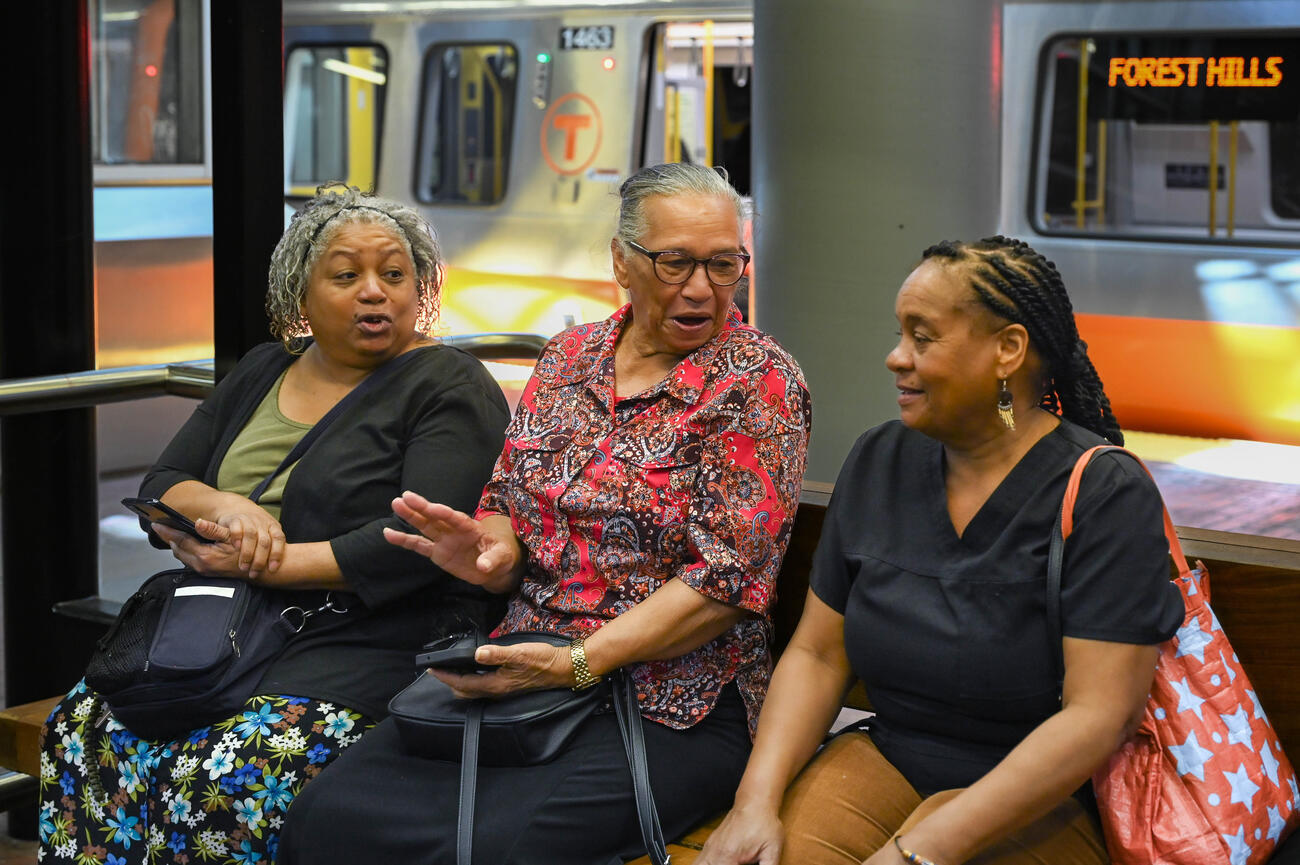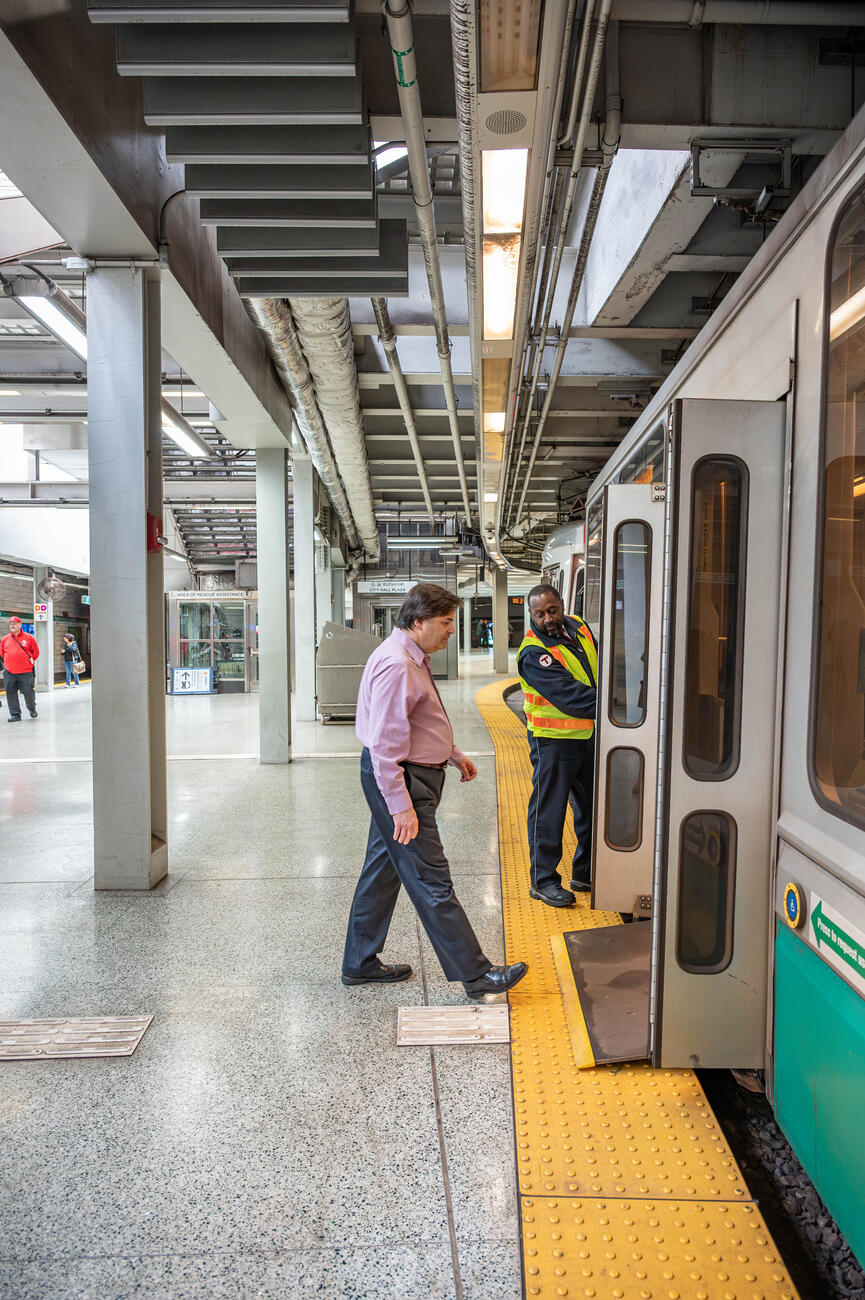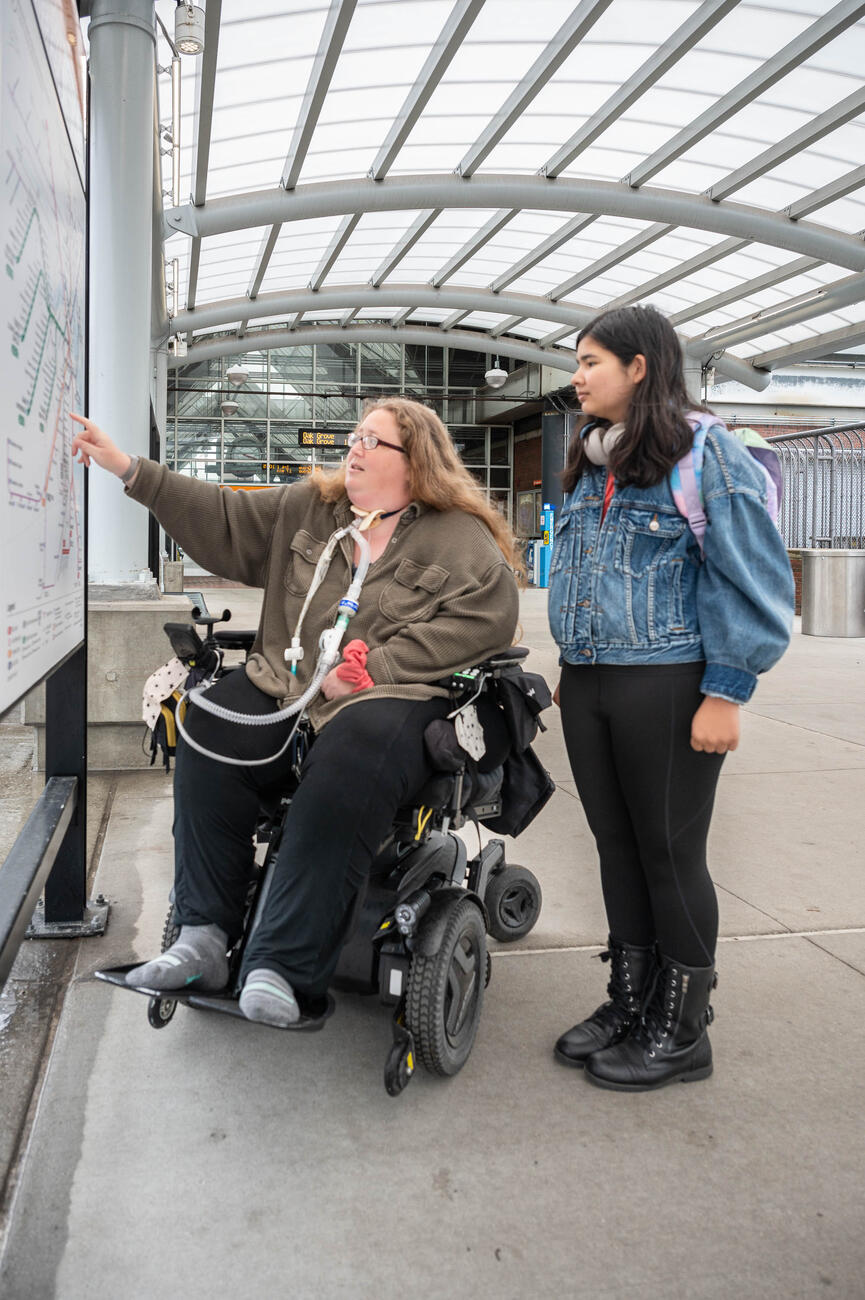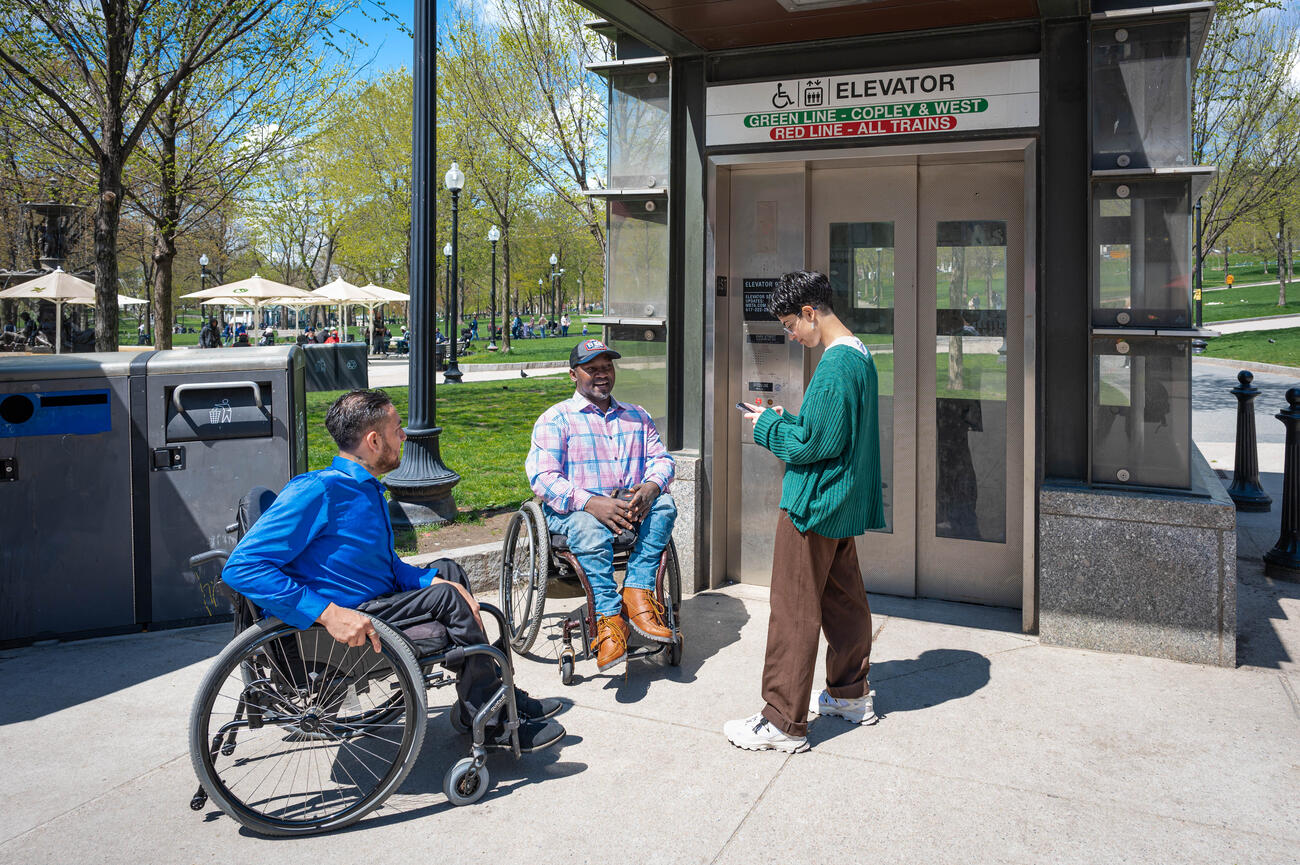Access in Motion Campaign
Updated on September 22, 2023
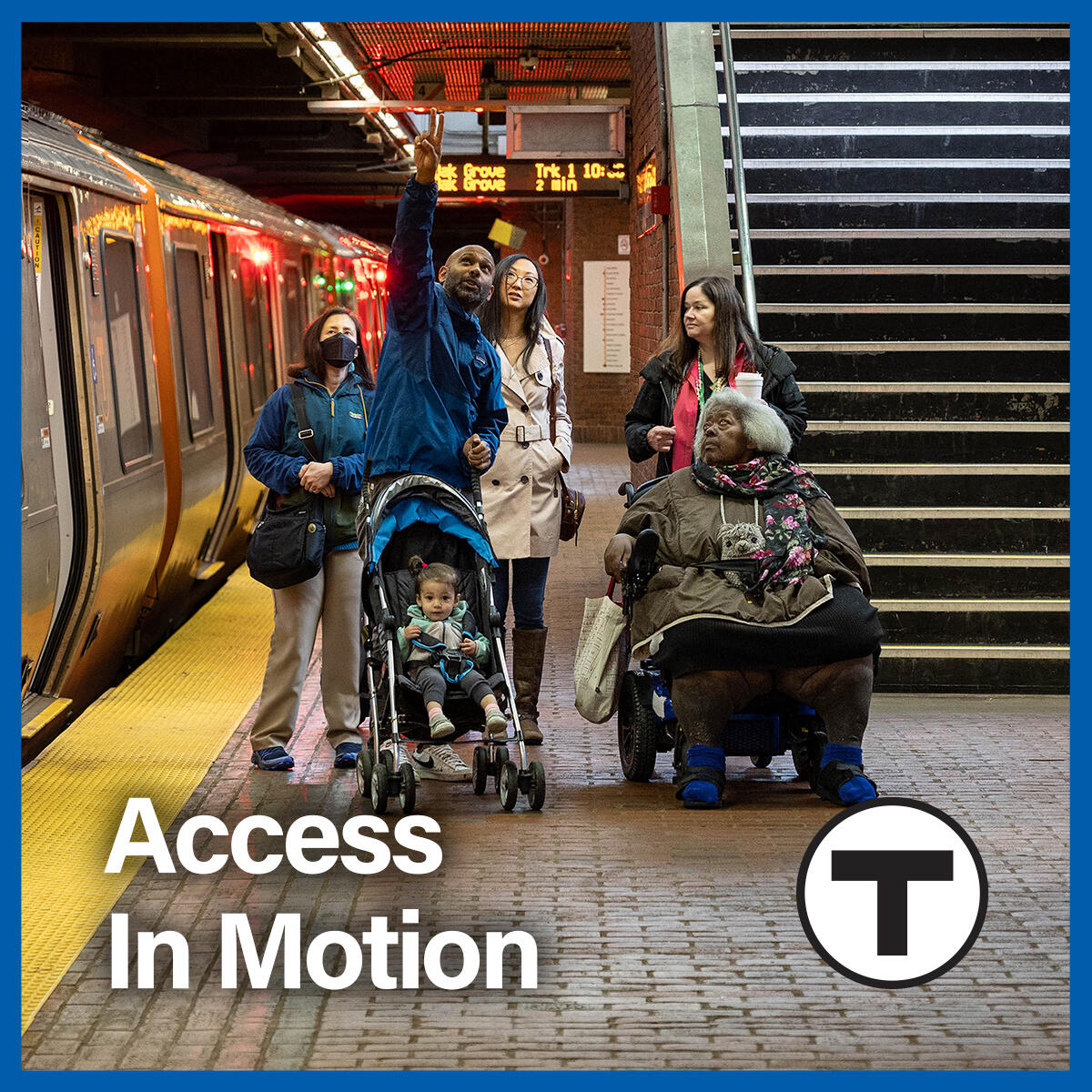
Access in Motion is a System-Wide Accessibility (SWA) campaign to promote the MBTA’s work towards making the T accessible for all. In collaboration with MBTA riders with disabilities, we developed these campaign objectives:
- Communicate that accessibility improvements benefit everyone
- Raise awareness about key accessibility policies and services
- Share accessibility updates we’ve made over the past 15 years and future updates in progress
Past and Future Changes
The Daniels-Finegold Settlement Agreement, a class-action lawsuit filed against the MBTA, spurred a number of projects to vastly improve accessibility on the system.
While are proud of the progress we have made, there is more work ahead. Since then, the SWA has made thousands of station and stop accessibility improvements across all modes on the T.
Where Can You See and Hear Access in Motion?
As you ride the T, you’ll see riders from the Daniels-Finegold plaintiff group, the Riders’ Transportation Access Group (RTAG), and other longtime advocates and riders, featured in digital, print, radio, video and onboard advertisements in vehicles, stations and online. Collaboration with these groups is crucial to advocating for accessibility across the T.
You can view behind-the-scenes photos from our advertisement shoots and many of our other advertisements in accessible formats below.
Radio, Streaming, and Social Media Advertisements
Advertisements on the MBTA and in Local Papers
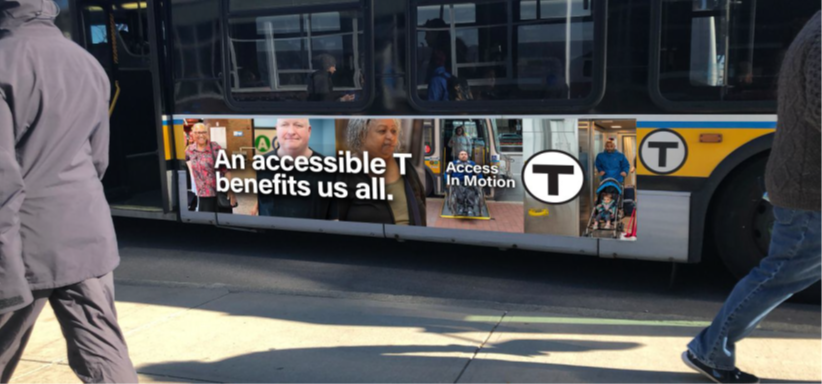
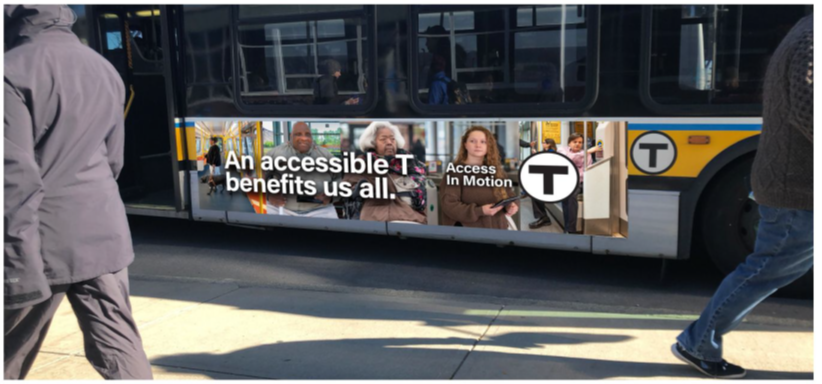
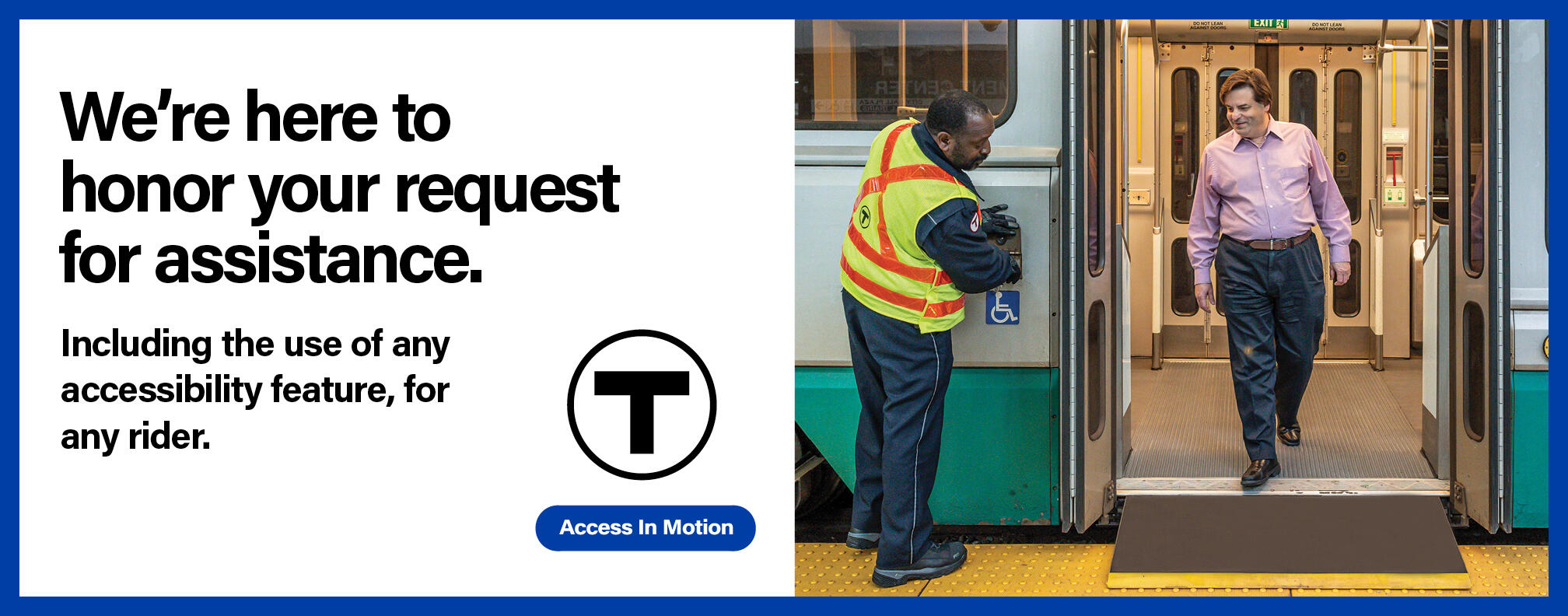
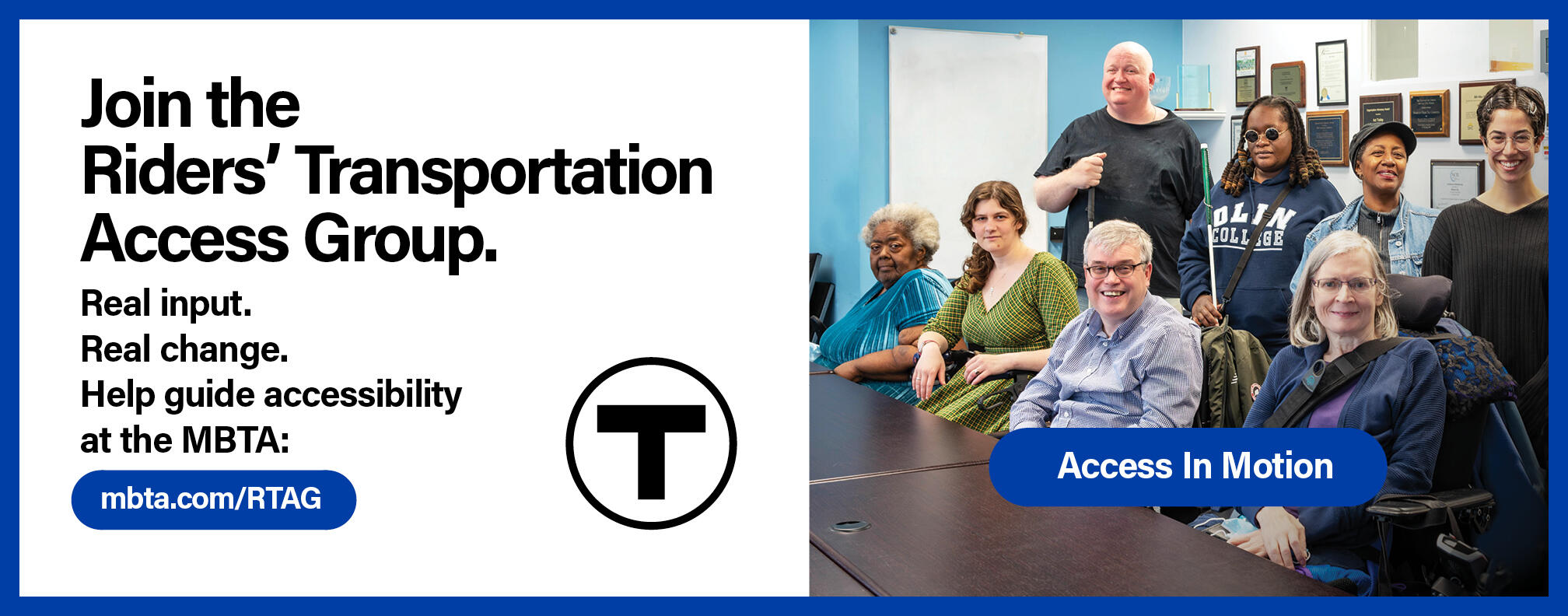
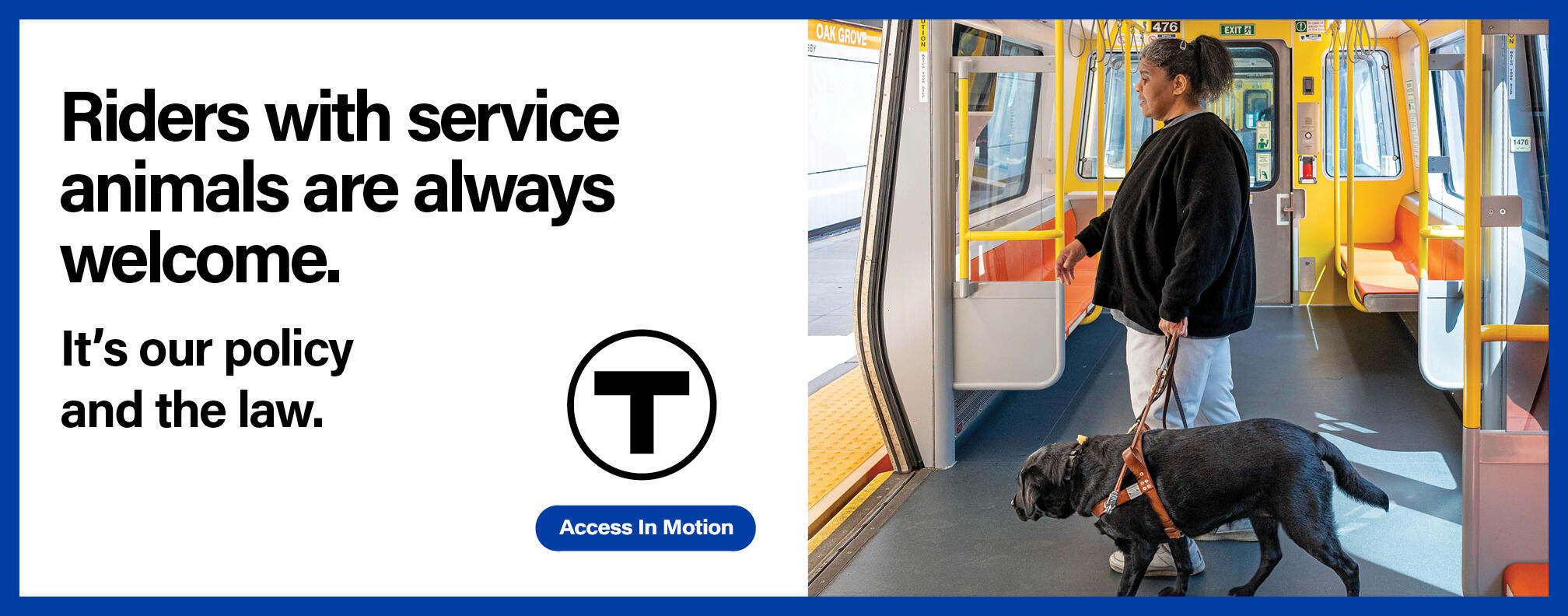
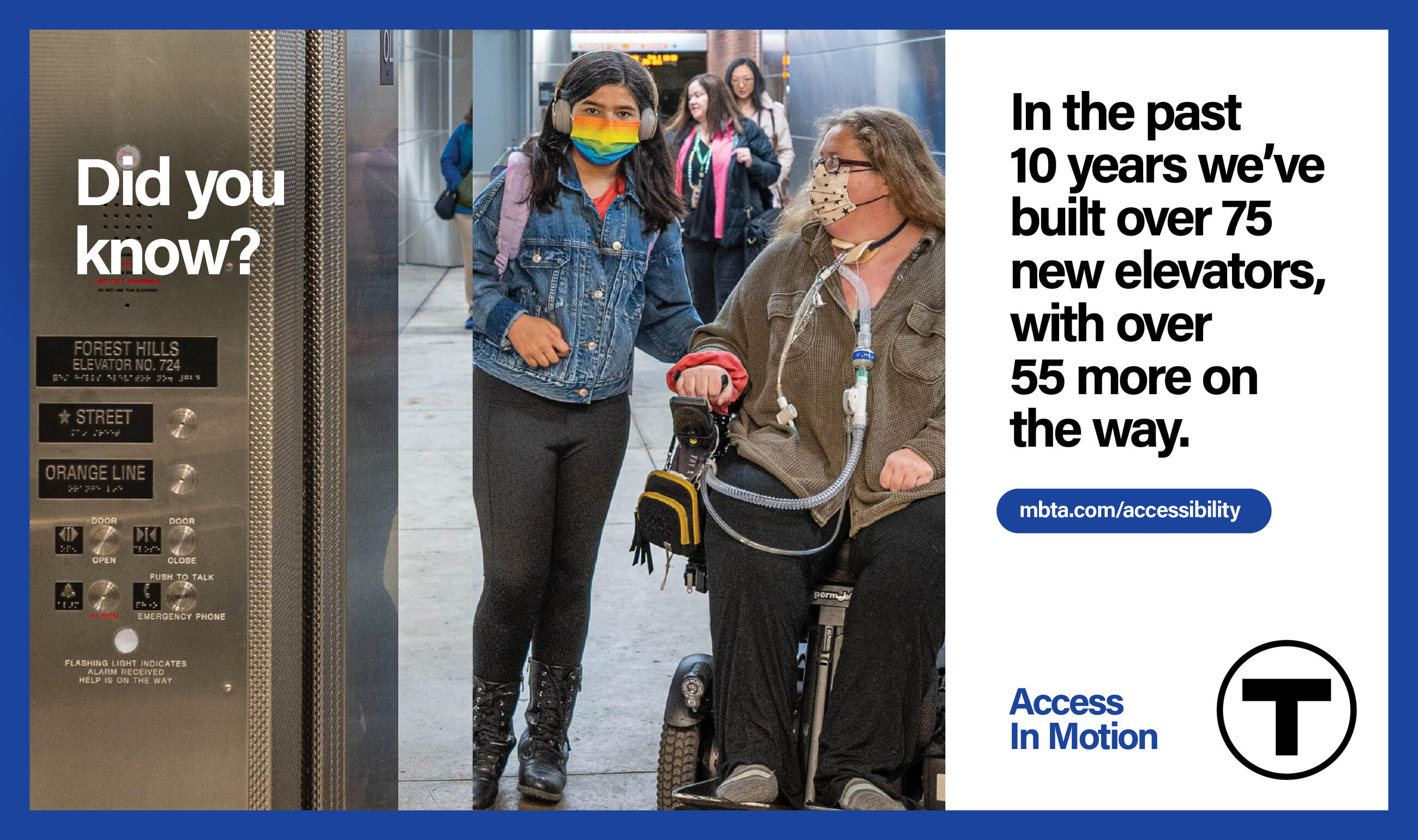
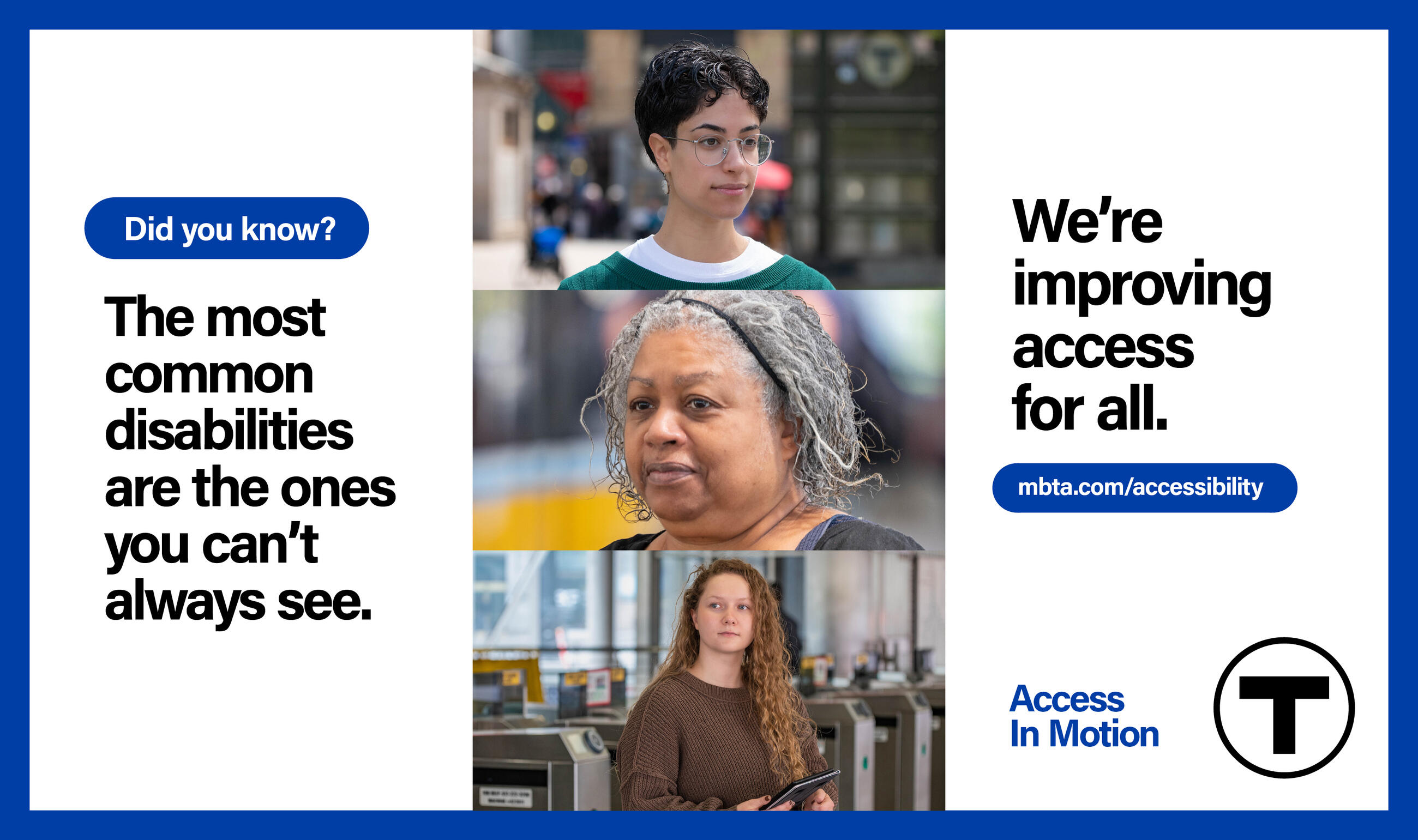
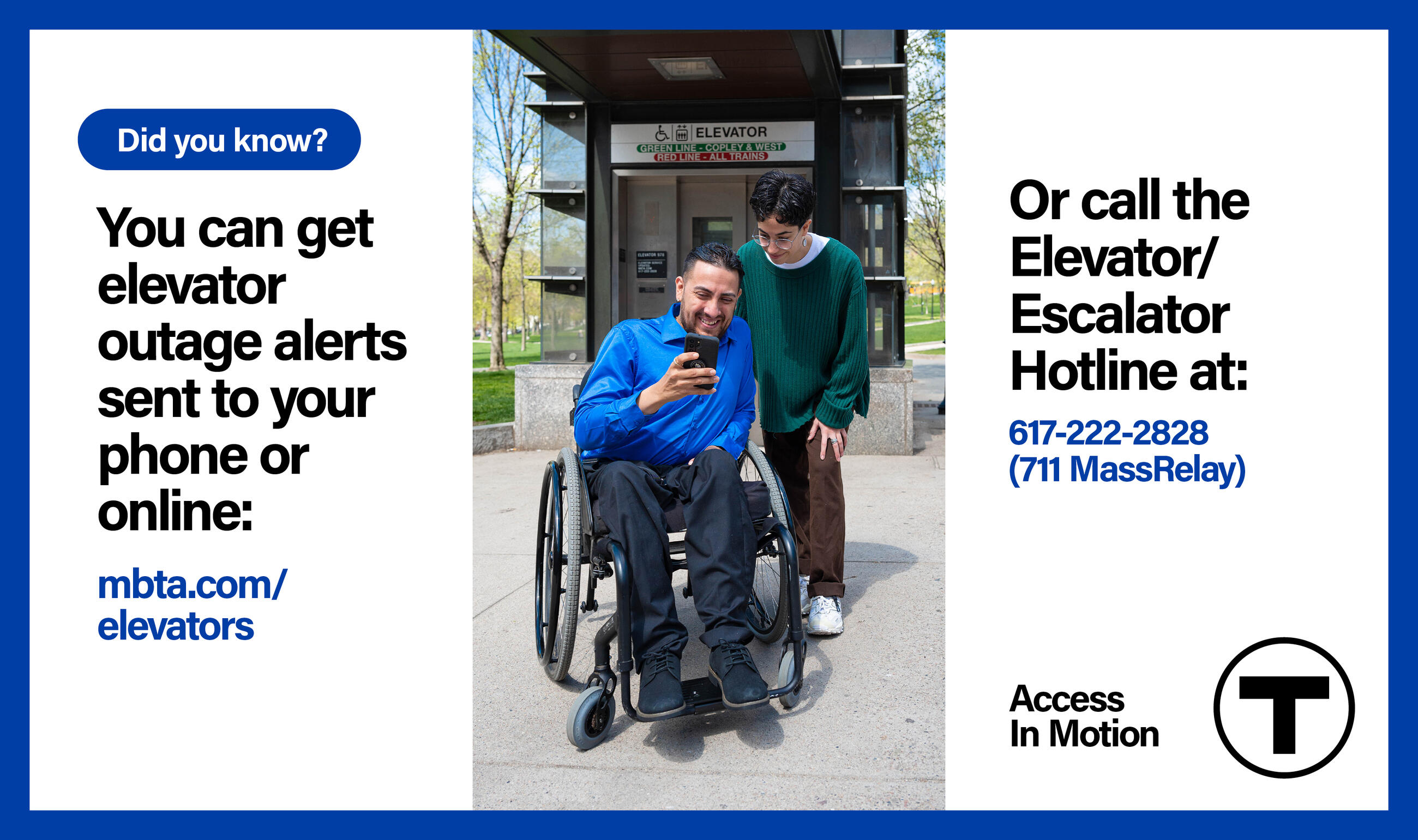
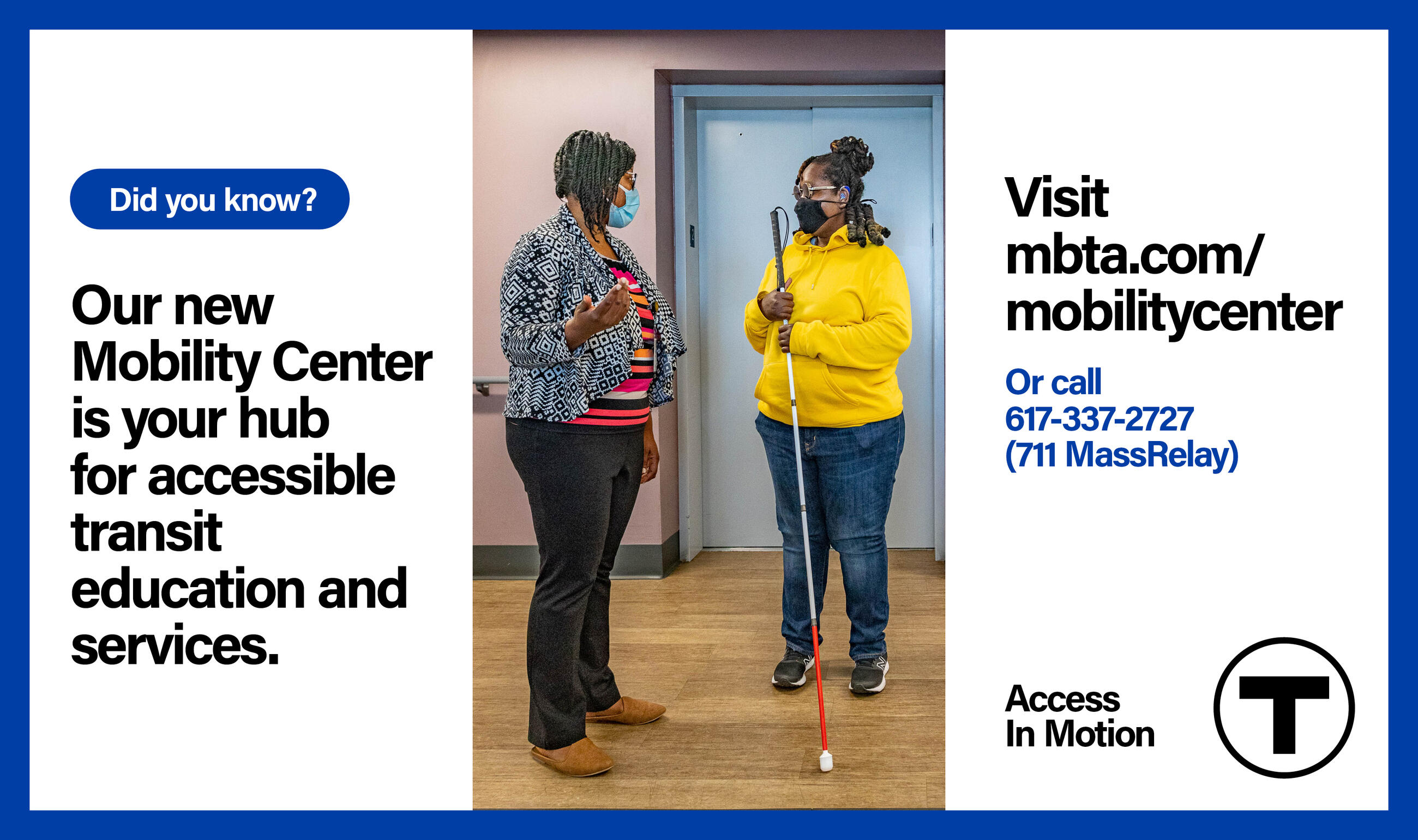
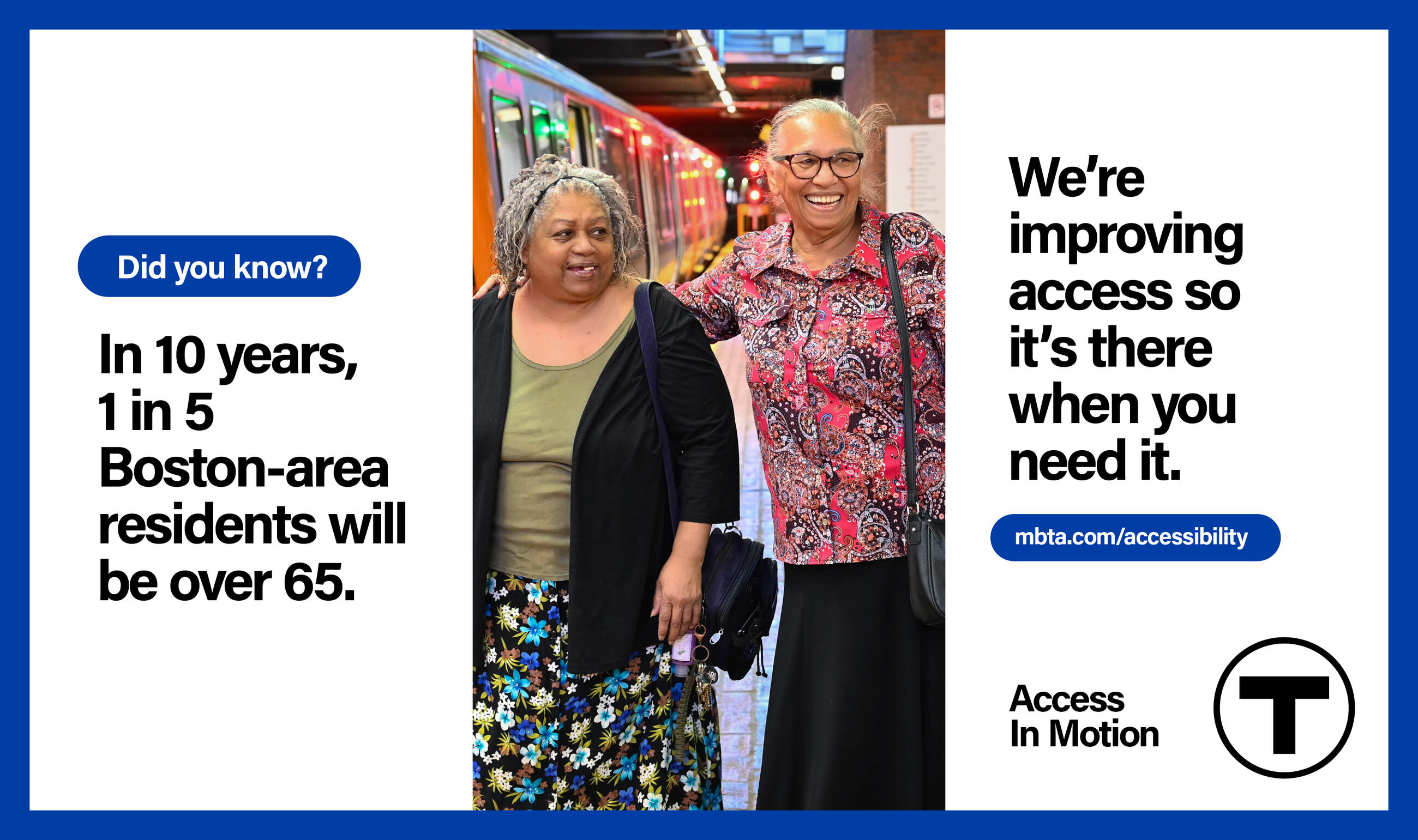
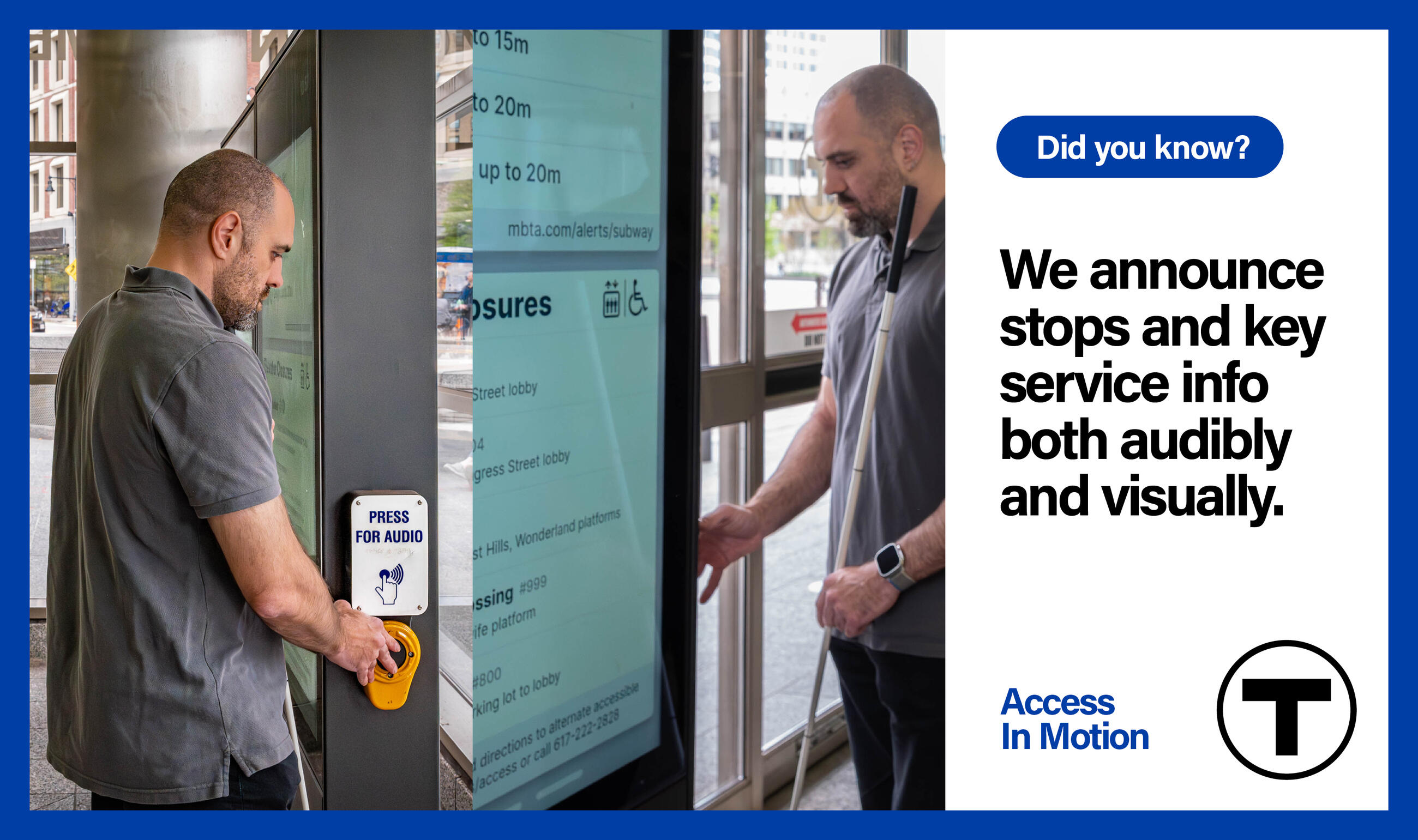
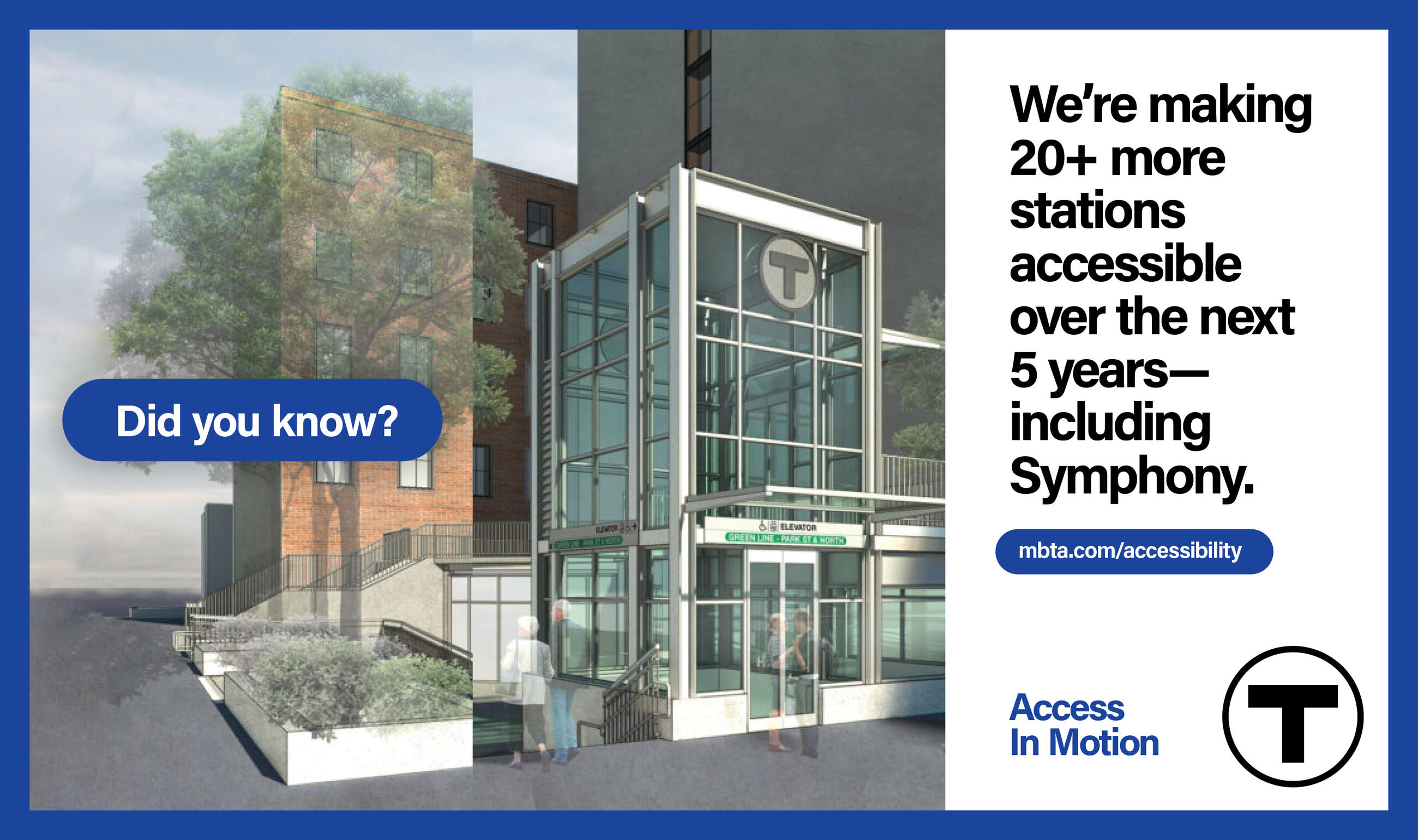
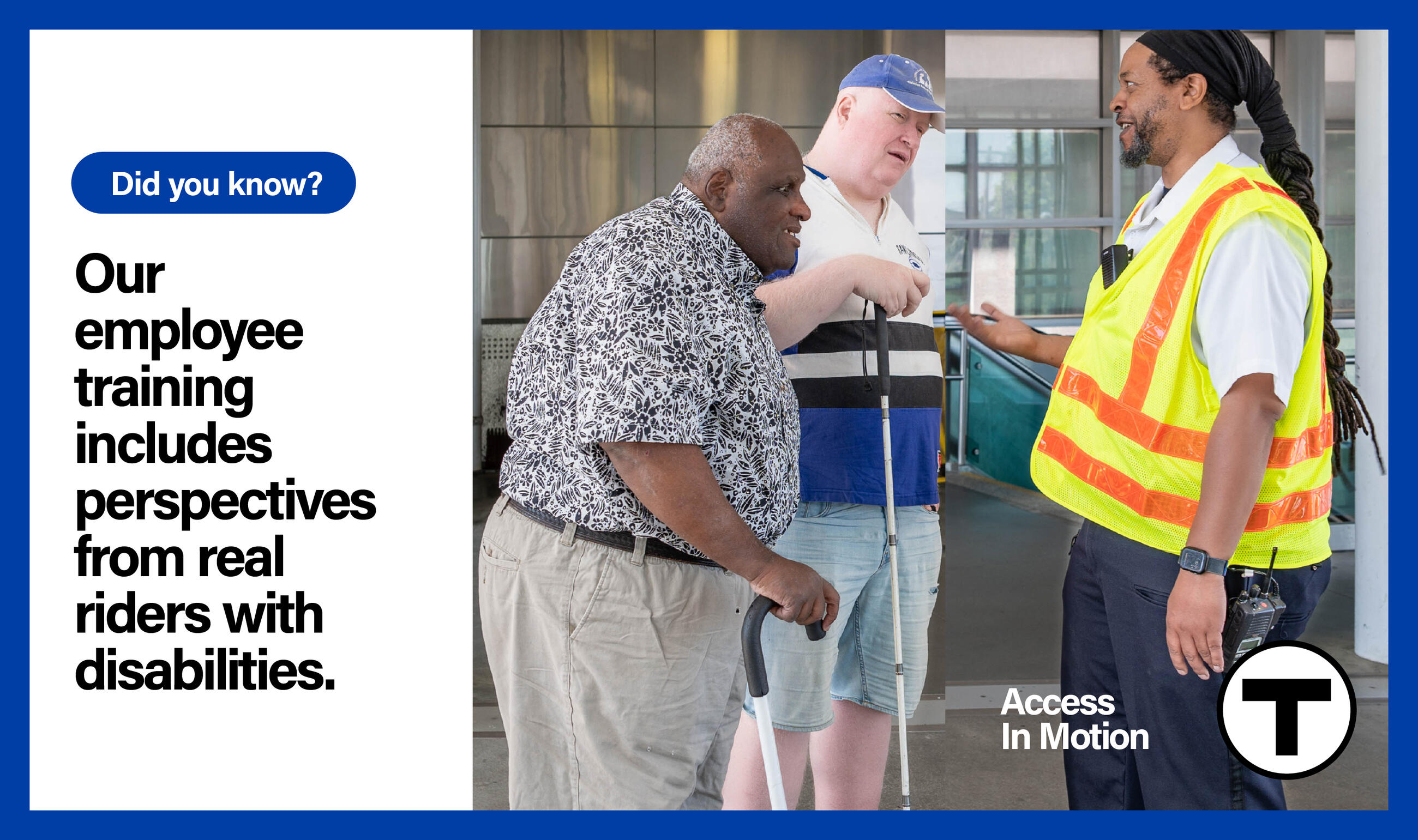
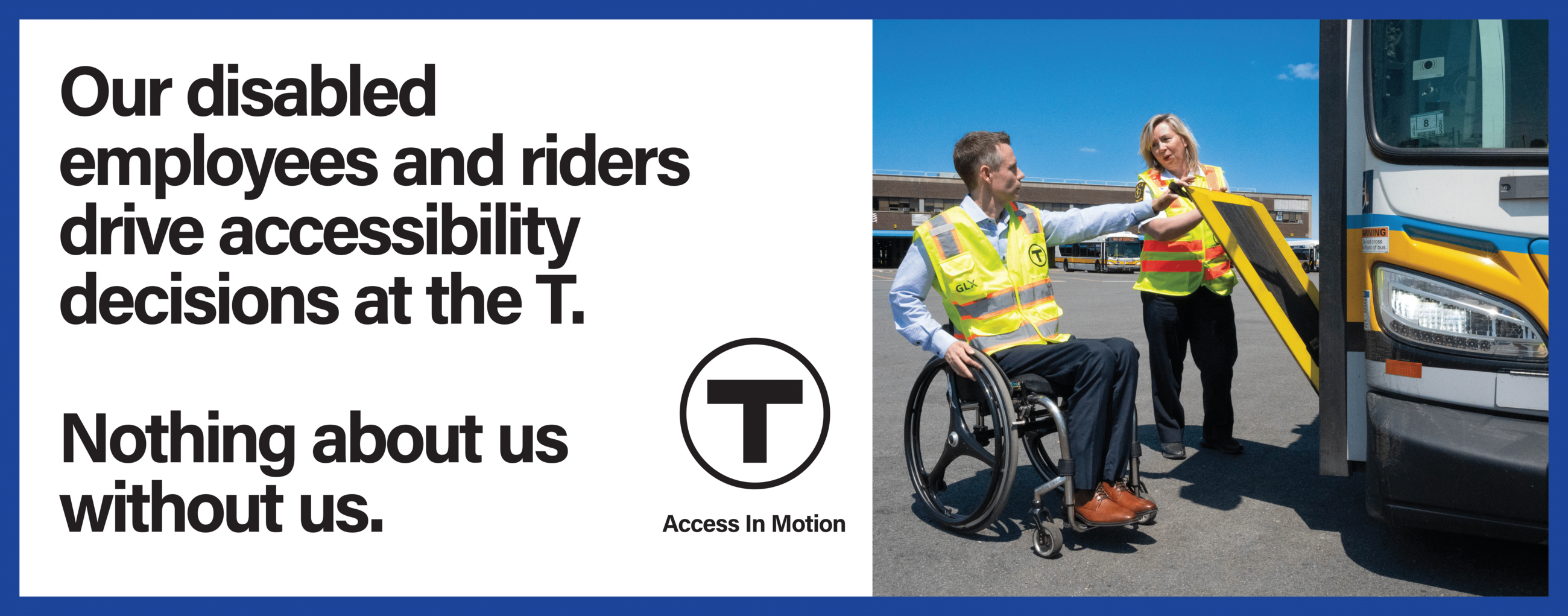
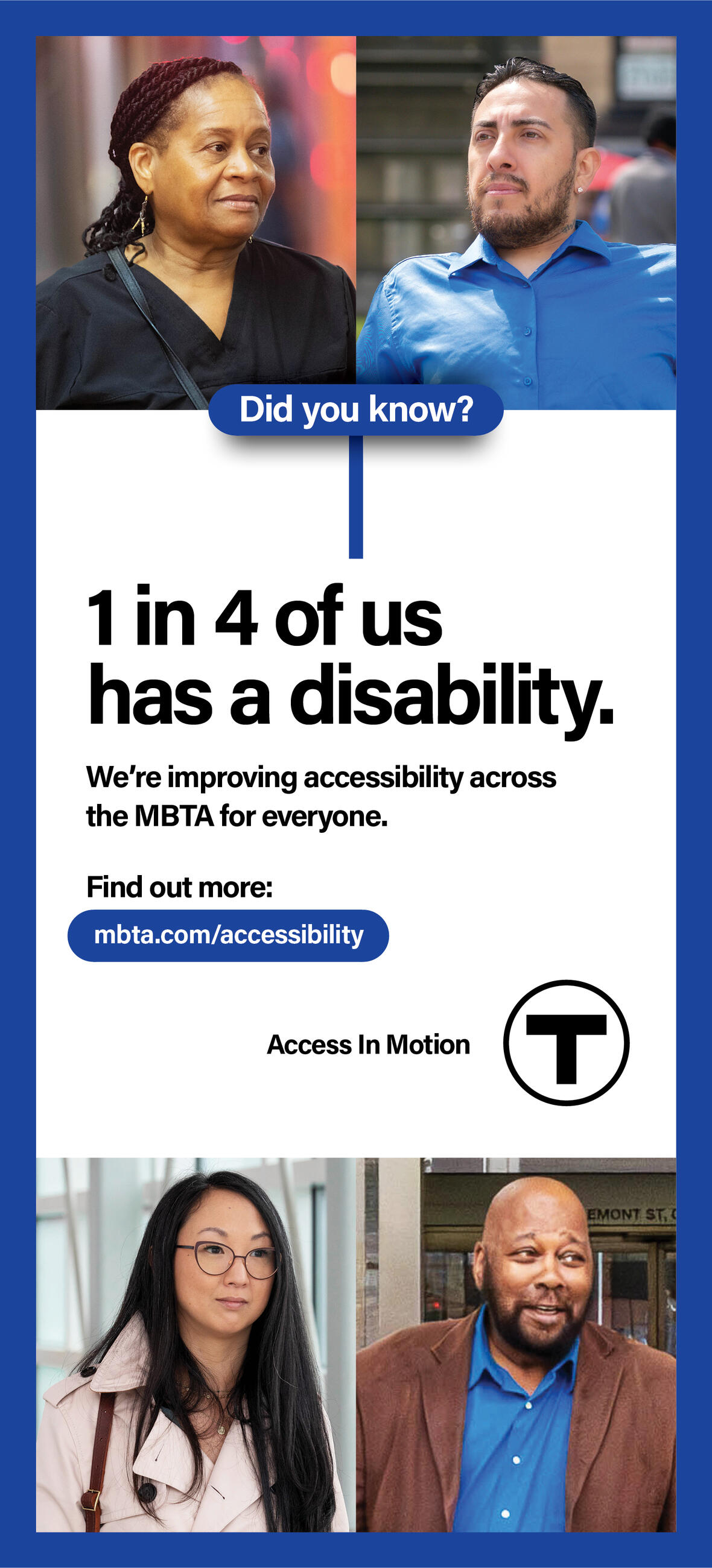
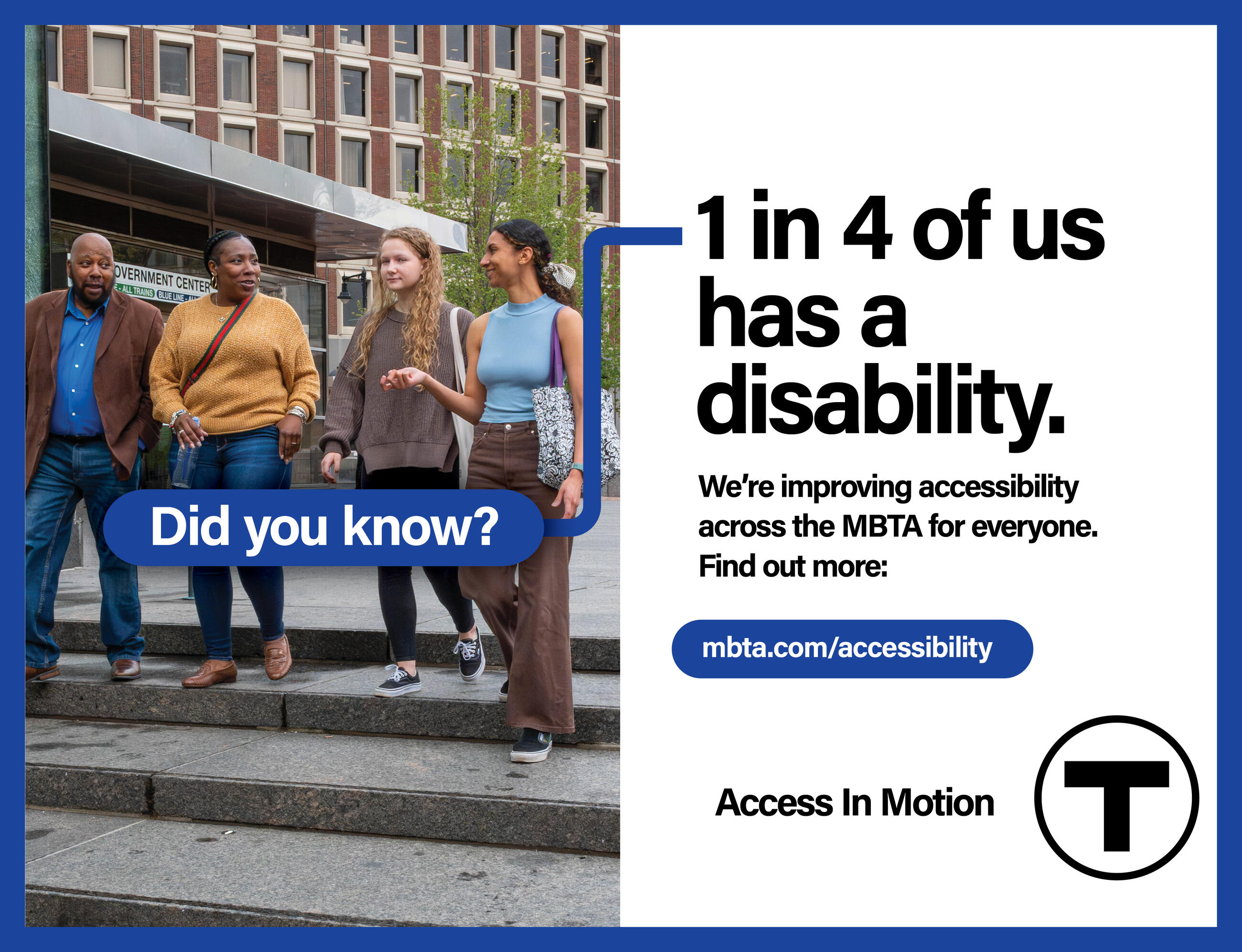
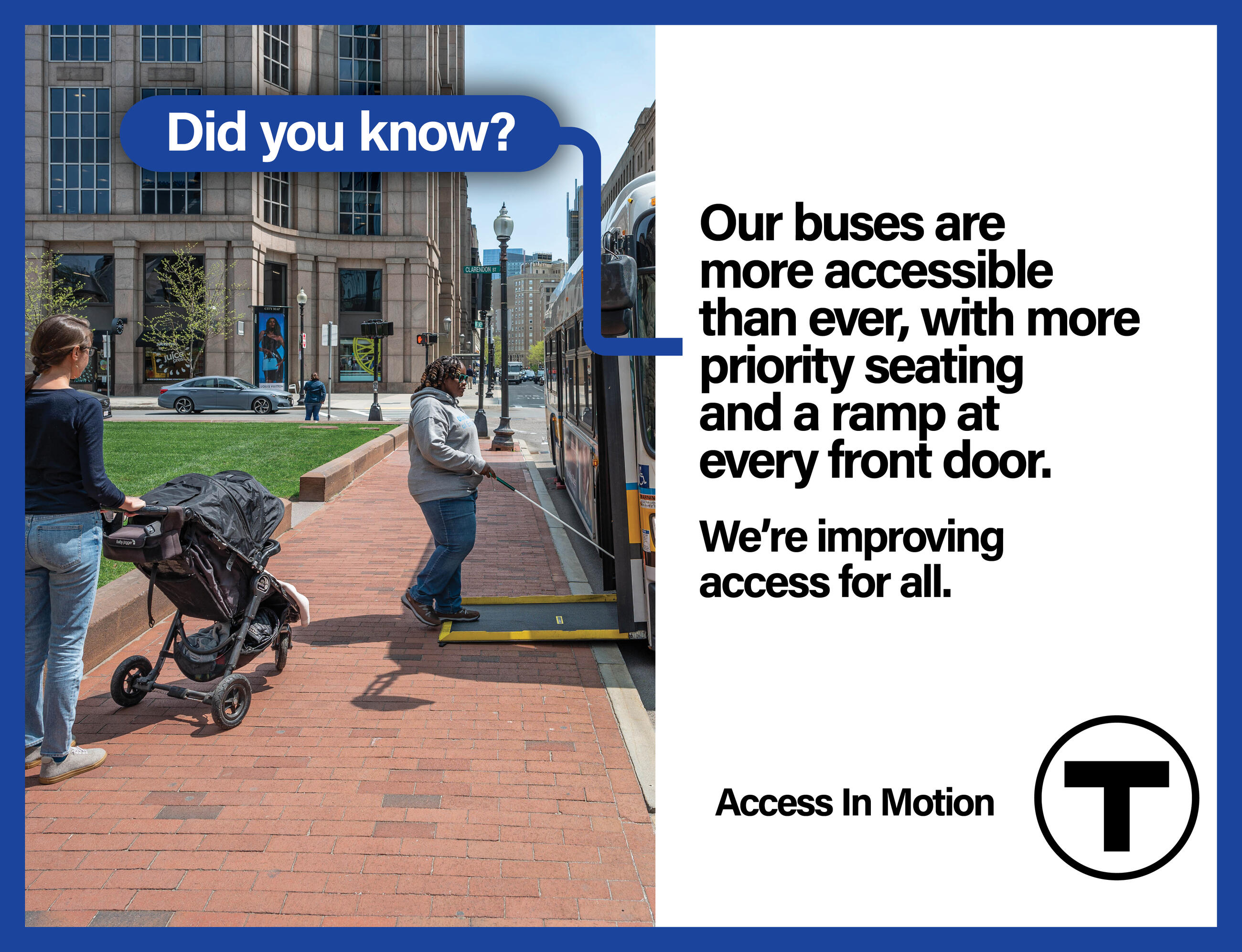
Behind-the-Scenes Photo Gallery
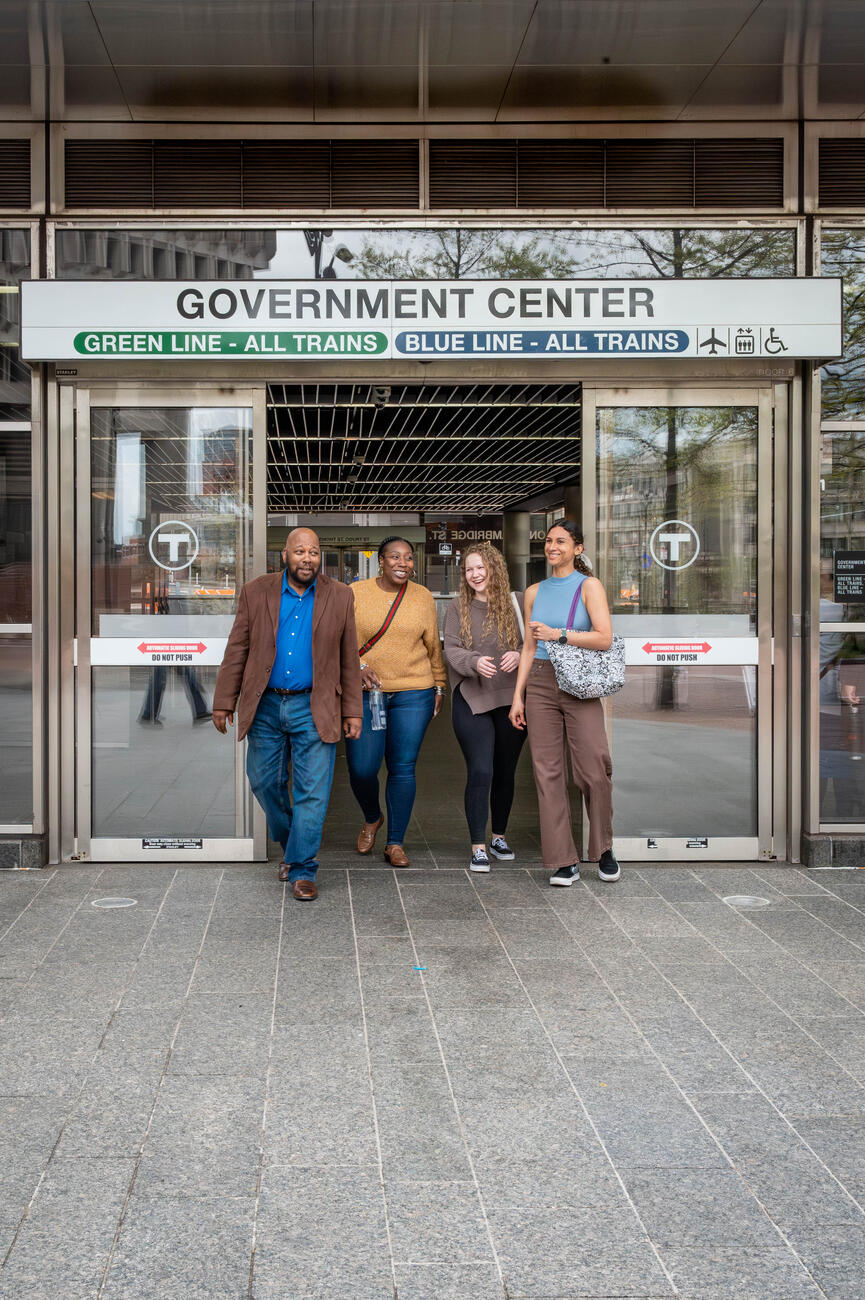
Four MBTA riders walk out of the Government Center Station. Left to right is an African American man, an African American woman, a white woman, and a Latina woman.
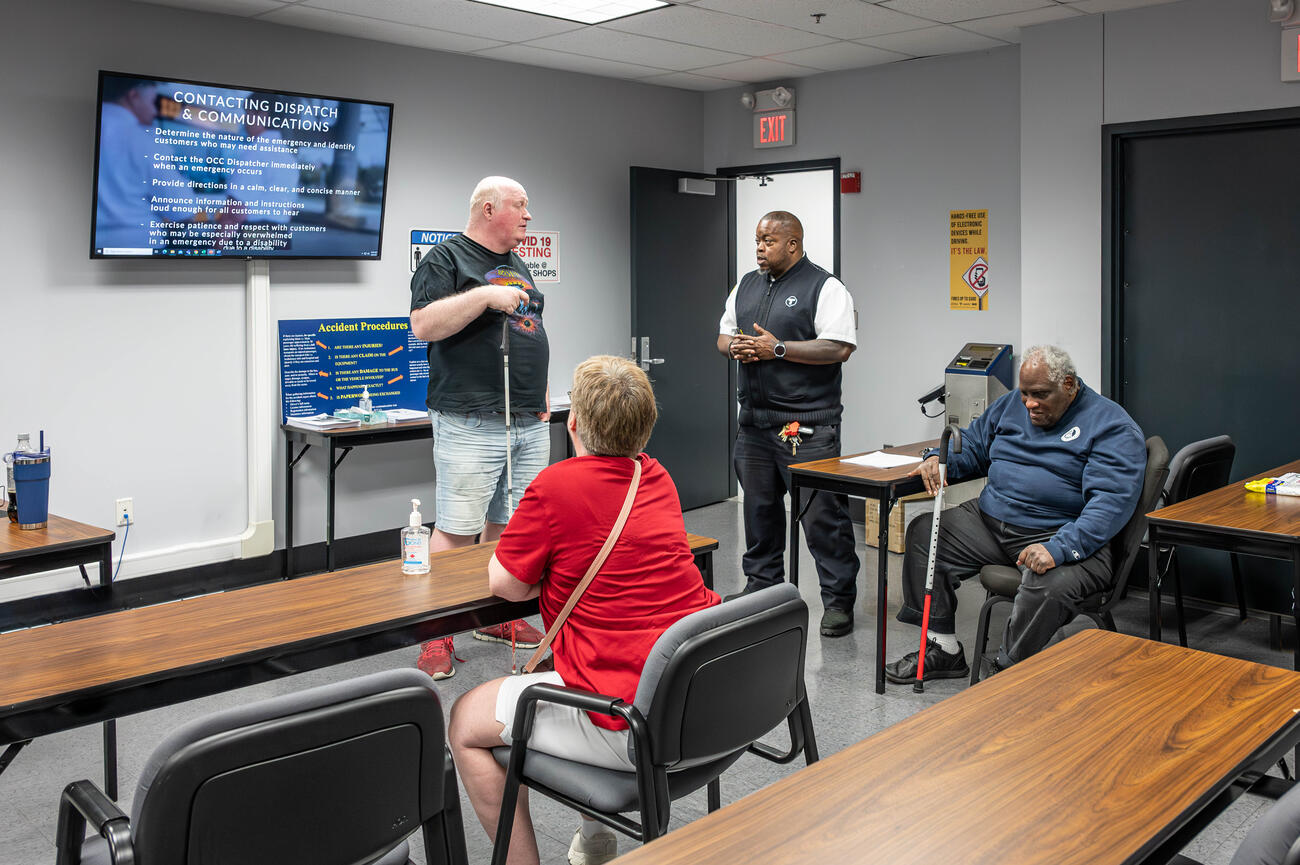
Three MBTA riders with disabilities participate in our Access in Motion bus operator training. A white man using a white cane is seen speaking with an instructor, who is an African American man. Seated in the front is a white woman and an African American man using a white cane.
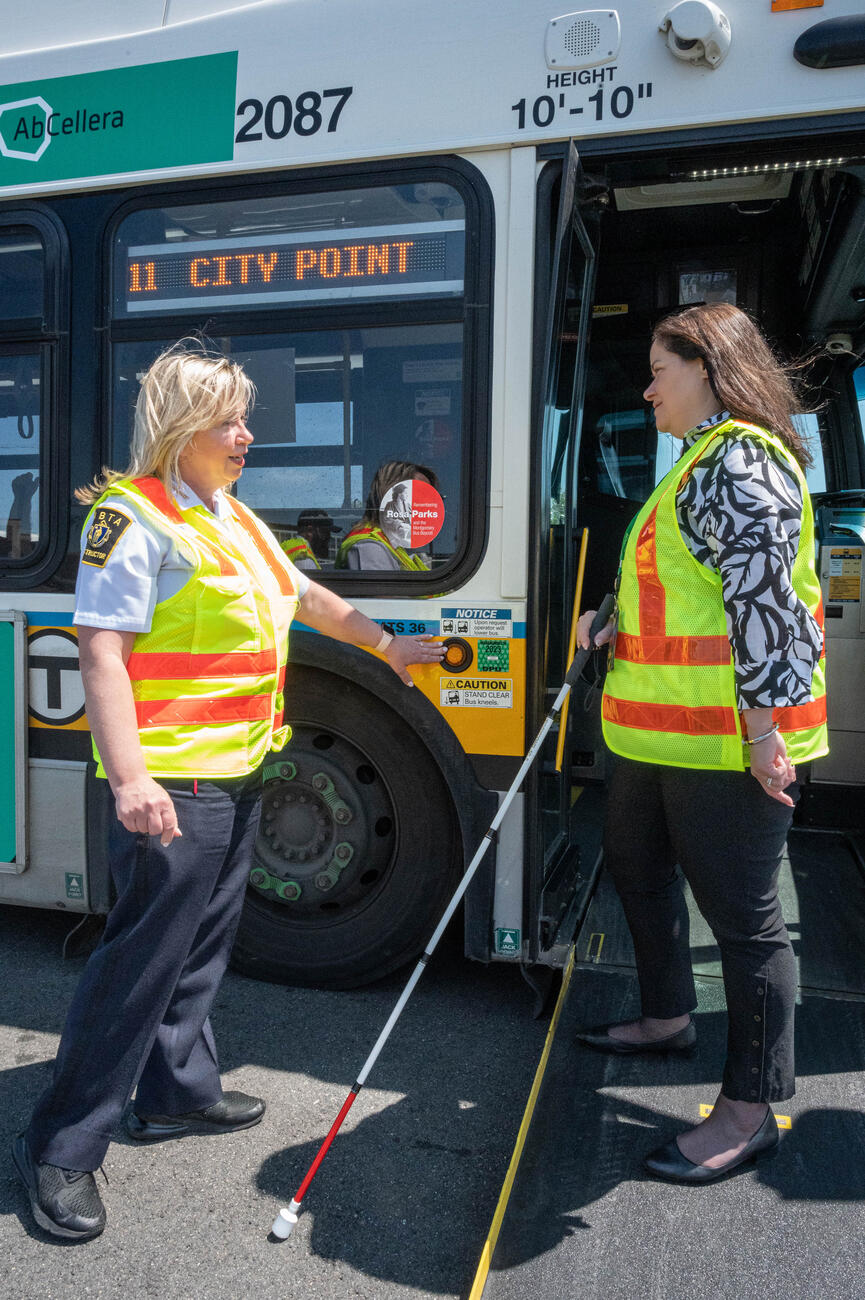
An MBTA employee, a white woman using a white cane, stands on the ramp at the bus entrance. She is speaking with an instructor, a white woman. They are viewing some accessibility features on the exterior of the bus.
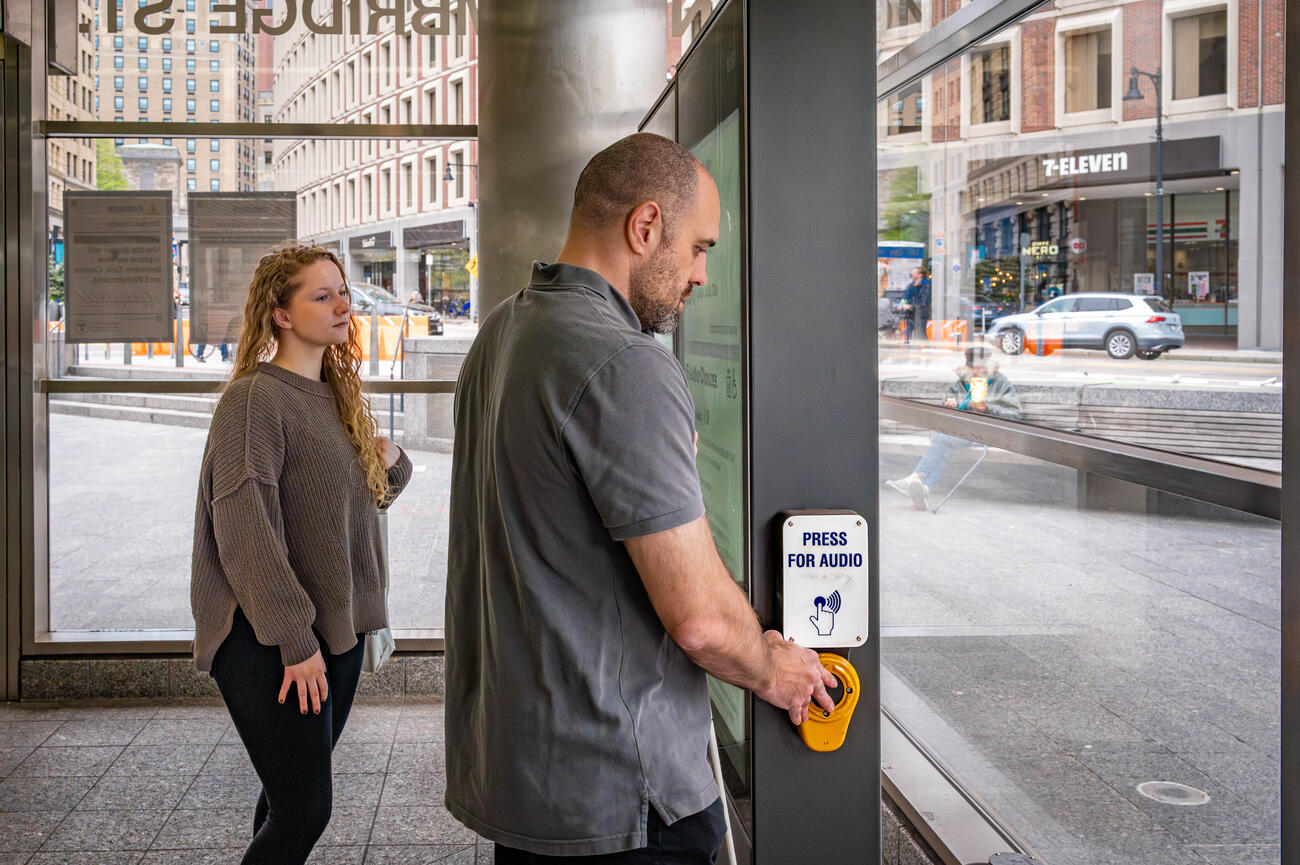
A white man holding a cane pushes the audio button on a customer information display screen. Next to him is a white woman who is hard of hearing is viewing the text information on the screen.
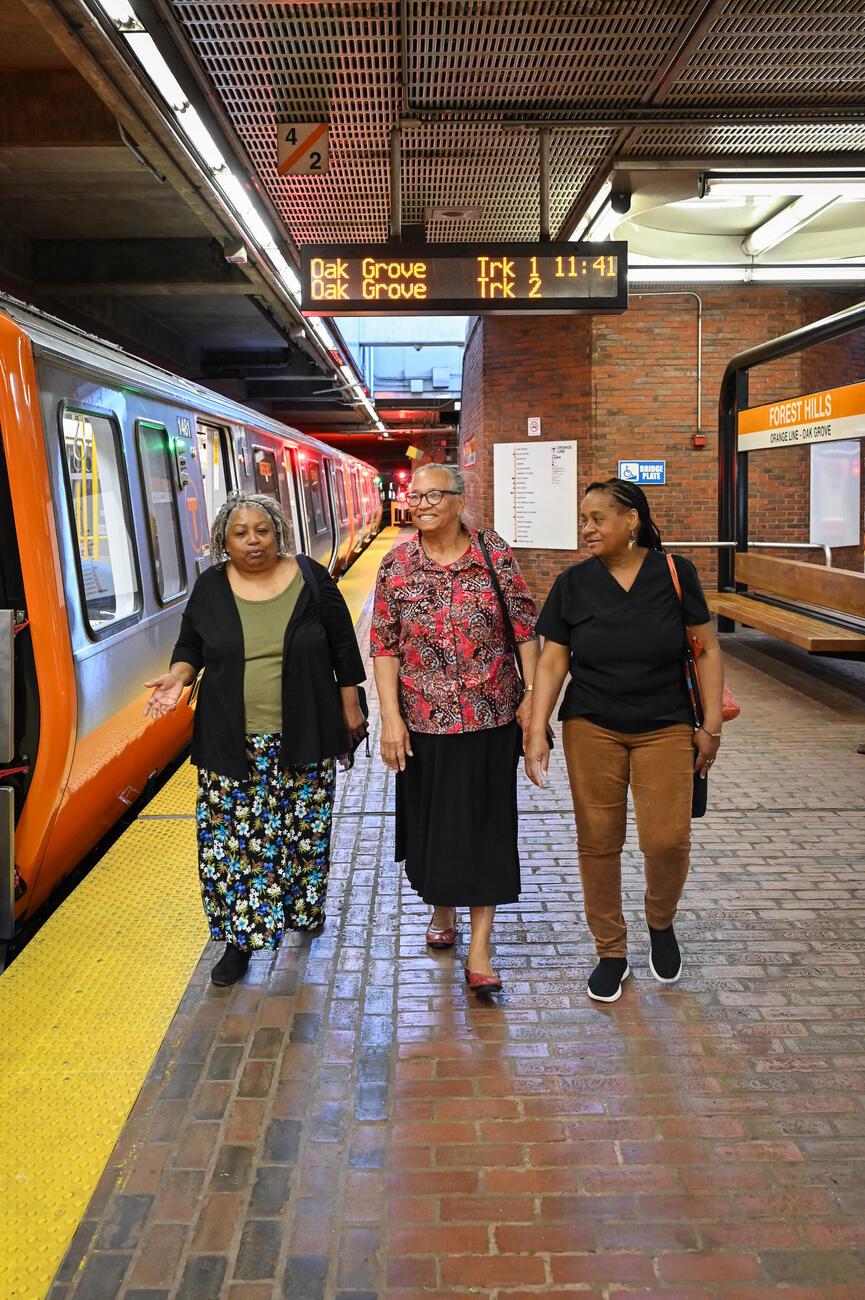
Three Latina women walk down the platform at Forest Hills Station as an Orange Line train is in the background.
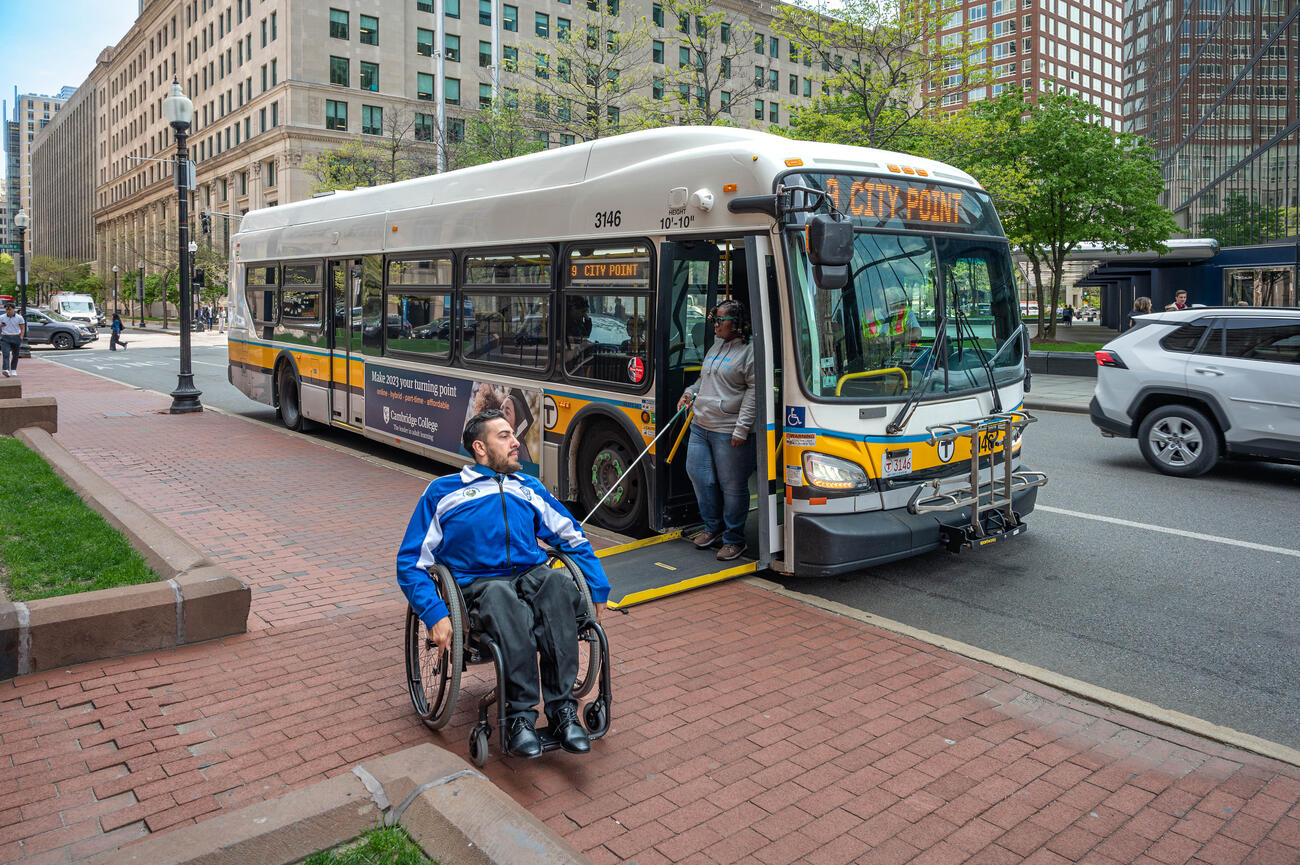
Two riders alight an MBTA bus via the ramp. A Latino man using a wheeled mobility device and an African American woman using a white cane.
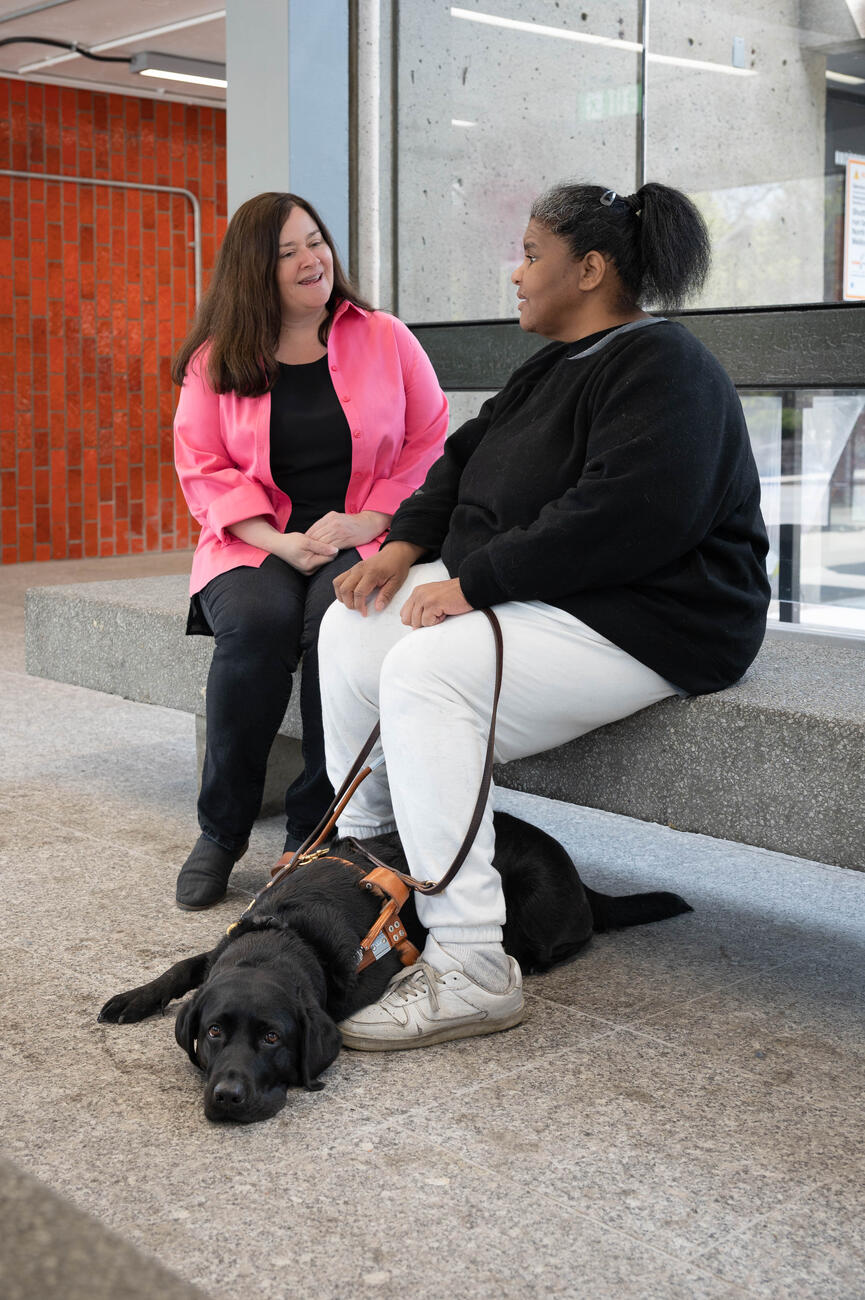
An African American woman using a service animal is seated on a bench at Oak Grove Station, speaking with a white woman.
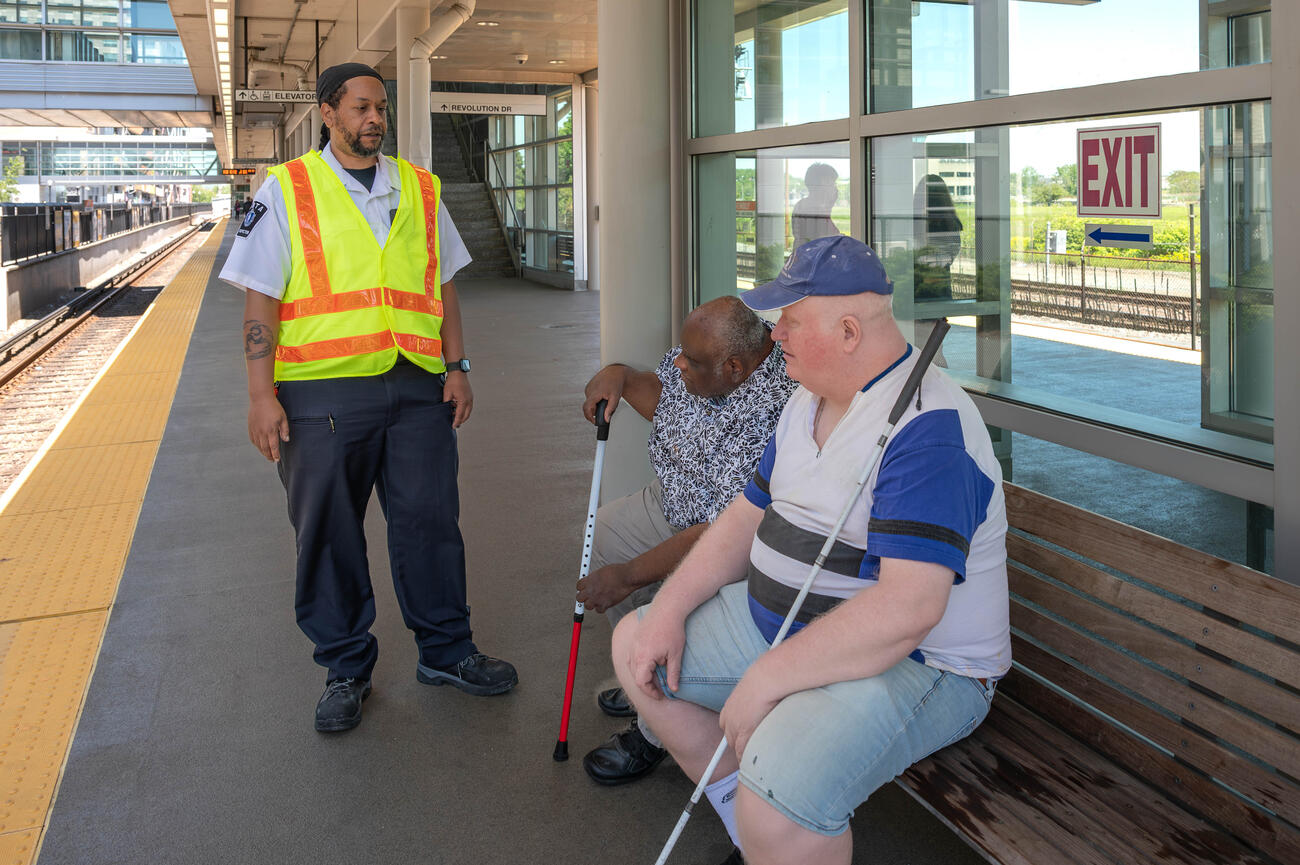
An African American male using a white stability cane and a white male using a white cane are seated at Assembly Square Station, speaking with an inspector, who is an African American man.
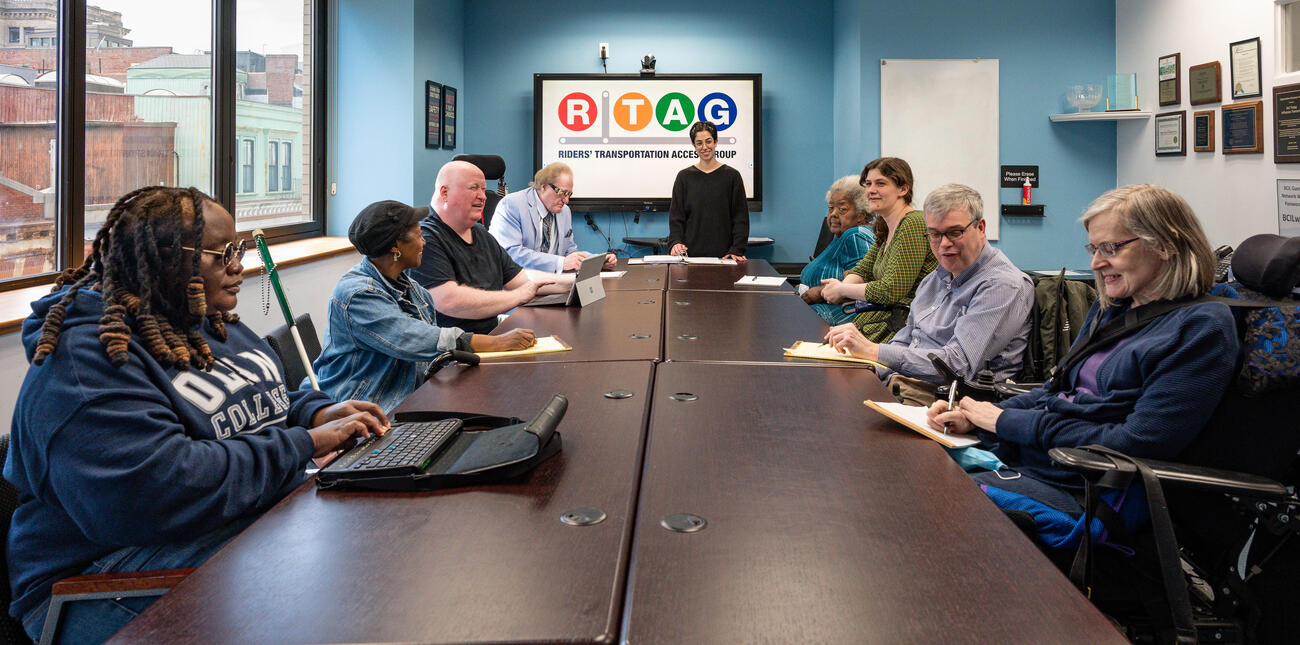
At an RTAG Board working session, eight members are seated at a large wooden table. The group facilitator stands at the head of the table in front of a screen which displays the RTAG logo.
Contact Us
Contact MBTA Customer Support with any questions, concerns, or comments about accessibility. Be prepared to provide as many details as possible so we can provide the most helpful response.
Learn more about the accessibility complaint process
Main Hotline: 617-222-3200
Toll Free: 800-392-6100
711 for TTY callers; VRS for ASL callers
Elevator/Escalator Hotline: 617-222-2828
Online
Need Help Accessing These Services?
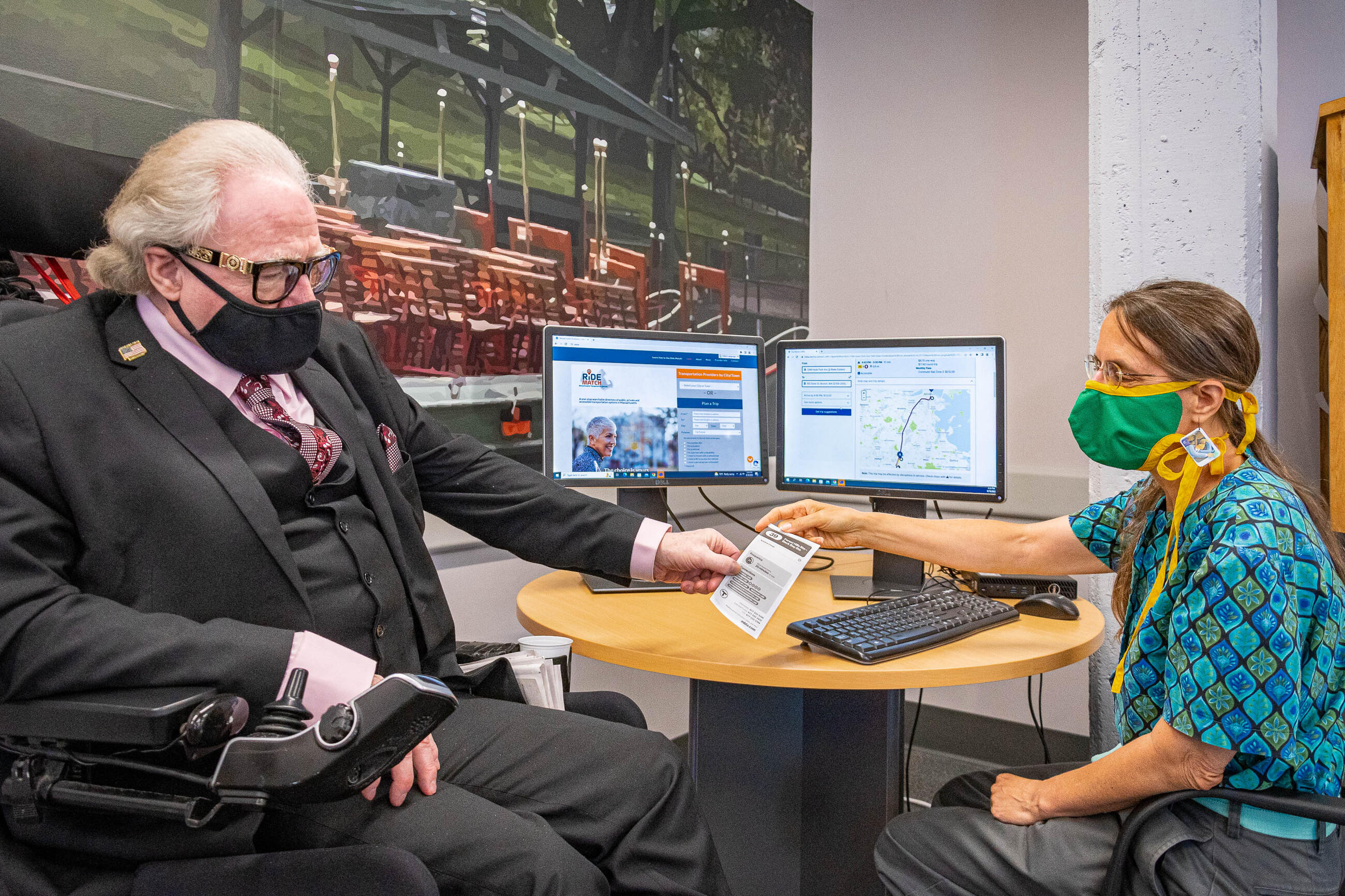
The Mobility Center, located in Boston at 1000 Massachusetts Ave, can help you plan trips, apply for reduced fare passes, sign up for The RIDE, and more.
Contact Us
Contact MBTA Customer Support with any questions, concerns, or comments about accessibility. Be prepared to provide as many details as possible so we can provide the most helpful response.
Learn more about the accessibility complaint process
Main Hotline: 617-222-3200
Toll Free: 800-392-6100
711 for TTY callers; VRS for ASL callers
Elevator/Escalator Hotline: 617-222-2828
Online
Need Help Accessing These Services?

The Mobility Center, located in Boston at 1000 Massachusetts Ave, can help you plan trips, apply for reduced fare passes, sign up for The RIDE, and more.
